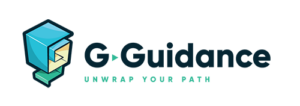The G-Guidance Project started a year ago, on September 2019, and a lot has been done so far. The team has been developing many activities for the different outputs of the Project, which were defined at the kick-off meeting in November 2019.
Our team of psychologists has been focused on developing the Profession’s Guide, which is the first intellectual output of the Project. It have been developed guides with textual information about more than 50 professions, which are the most wanted by students across the countries that are part of G-Guidance.
Beyond the Guide development, it has been developed the interviews to professionals of different areas, including medical doctors, veterinarian, nurses, engineers, influencers, designers (videogames included), policemen, drivers, biologists and so many others. These interviews will be presented to students at the platform on their career construction process.
Regarding the 3rd intellectual output, it has been developed an innovative method and more participative methodology for vocational development and career construction. Our team of Psychologists is designing a methodology where educational agents, such as teachers and parents, will participate and support students on their vocational development, added to the intervention carried on by school psychologists. Of this method, make part some assessment measures that are widely accepted and validated by the scientific community as well as are used by psychologists in the countries involved in G-Guidance Project. Some of the measures are: the Career Adapt-Abilities Scales + Cooperation scale (CAAS+C; Savickas & Porfeli, 2012), the Student Career Construction Inventory (SCCI; Savickas, Porfeli, Hilton & Savickas, 2018), the Student Career Decision-Making Difficulties (CDMD; Stoltz & Barclay, 2019), the Self-efficacy Inventory for Multiple Intelligences (SIMI-40; Cejudo, Losada & Perez-González, 2017), the Personality Assessment Questionnaire (PAQ, child version; Rohner, 2004), and a set of measures related to Acceptance-Rejection Theory (TARQ, child version; (PARQ, mother and father; Rohner, 2004). With this set of measures, it is intended to evaluate students’ exploring occupations and making decisions level, lack of readiness and information, self-efficacy for multiple intelligences, psychological adjustment and their perception of acceptance by teachers and parents.
Beyond this set of measures, our team of Psychologists is developing a new questionnaire of vocational areas inspired by the Holland’s typology theory. This questionnaire is designed to scan students’ interests, skills, personality traits and values. The students will fill in this questionnaire in the beginning of their path at the digital platform, that allows them to create a sense of “vocational identity” and start from there the construction of their career. Teachers and parents will assume an important role along the path, participating actively in the process. Teachers will have a cooperation role, helping students selecting and developing the activities they will do and also supporting school psychologists with providing useful information about students. Parents will also have a cooperation role, supporting and helping students carrying out the activities.
From now on, G-guidance’s team will continue to develop the digital platform and prepare to do the pilot test at our school-partners and start to give trainee to school psychologists that will work with the platform at schools.

Leave A Comment